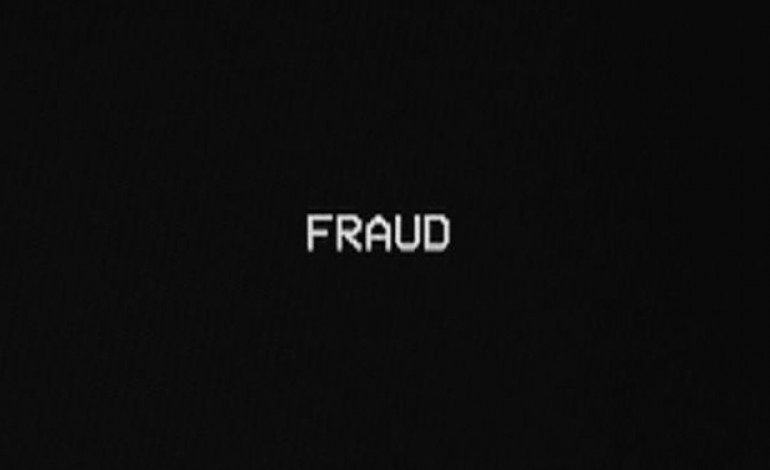

No credits, no talking heads, no epilogues, no prologues, no testimonials, no title cards, Fraud is a “documentary” bolstered by a unique, if not full-on controversial, backstory. Described as “impressionistic meta-fiction,” a term that I won’t even begin to parse, Fraud is ostensibly about a severely materialistic family in 2012 whose increasing debts and creditors and inability to stop spending leads them to burn down their home for the insurance money. Its larger hook is that writer-director Dean Fleischer-Camp found hundreds of hours of seemingly “innocuous” YouTube videos (that being home movies of the Average American Family) that documented their crime and subsequent run from the law, and then he and editor Jonathan Rippon edited it down to a ~50-minute feature.
The first (obvious) question would be, why would a family of normal – if not particularly bright, than at least not overly stupid – people film their crime and its preparations on YouTube? (Did they think no one would comb through hundreds of hours of footage to figure out their scheme? Did they want to hide in plain sight? Did they see this as a game, as though they were Mr. and Mrs. Moriarty, master criminals waiting for someone to take the bait?) Nevertheless, it’s a testament to the film and the filmmakers that we don’t ponder this angle for too long – or, more accurately, we readily accept the premise.
The husband and wife are perfectly average people who are loathsome in their own self-centered way. With remarkably little dialogue and no testimonials or verbal insights, we buy into them and their belief that they can get away with anything. Their continued compulsive spending, even as they get bill upon bill, creditor notice upon creditor notice reads as completely natural. Credit goes to Fleischer-Camp and Rippon that we instantly ‘get’ these characters. It’s not that unreasonable that they would find their lives so interesting that they’d post anything and everything online just because they think they and their children are that remarkable. It’s what YouTube essentially is; it’s why we have trailer reaction videos.
And if that answer doesn’t seem entirely satisfying, I readily admit that it’s not. During its run on the festival circuit, Fleischer-Camp was called out on Fraud‘s reliability and truthfulness and understandably so. In my admittedly scant research of the movie, I couldn’t find much in the way of actual evidence of who these people are or what they did or what happened to them or what channel they were on or the like. You’d think if a family uploaded videos of their insurance fraud on YouTube, we’d have heard about it. I’m sure once the film gets released, plenty of people will provide more accurate information on who these people are, for good or ill, but for now I’m leaning towards fake.
But that’s okay, because maybe the more appropriate question isn’t whether Fraud is real or not, but whether that matters. The movie is entitled Fraud, so buyer should beware from the outset. Sure, the titular fraud at least partially refers to the insurance fraud that forms the ‘plot’ of the movie, but it’s too poignant a word for a film as conceptual as this one to refer to that sole thing. If it was just supposed to be a documentary or docu-drama about a family who burns down their house for the insurance money, we would have gotten a far more conventional feature, with actual answers and some form of closure. A title card at least.
We should read the fraud in Fraud as applying to different layers within the film itself. Could Fleisher-Camp have been the victim of fraud in scouring and editing down hundreds of hours of nonsense YouTube video of a perfectly average family putting on a show for no one in the off chance that something like this happened? (And that would be among the greatest cons ever perpetrated.) Could he be “defrauding” the audience with false claims of its reality? Possibly, though it’s far from the first film to do that. Aside from the legendary marketing scheme behind The Blair Witch Project, films such as Exit Through The Gift Shop and Catfish are just some recent examples that play with the notion of truth in documentaries. (There’s also the overarching question of how can we be sure that anything we see on YouTube is real in the first place.)
The important thing is that as a movie, Fraud is strangely compelling and engaging. Despite its brisk running time (52 minutes), we’re thrown into these home movies without knowing anything about what the film is about or supposed to be about. The house burning is not punctuated by music cues or camera tricks and is treated with less of an emotional response than the family getting a new toy. Whether the footage is genuine or not misses the point of Fraud; it’s the film’s voyeuristic quality that plays off of our willingness to share personal moments to the public at large and or willingness to watch other’s personal moments that speaks to a reality realer than the story itself.
The Verdict: 4 out of 5
Allegedly constructed by compiling hundreds of hours of YouTube “home movies,” Fraud is a dark look at an amoral, debt-ridden family. Whether actually real or darkly satirical, Fraud provides an honesty uncommon in many documentaries by just giving us the raw materials. It’s one of those movies where half the fun is trying to figure out what the filmmaker’s intentions are. It’s a gimmick that doesn’t always work, but it does here.
